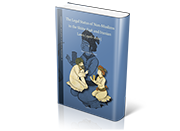Description
This work, a partial history of Iranian laws between 1906 and 2020, demonstrates that the main obstacle to improving the legal status of non-Muslims in Muslim contexts is the fiqhī opinions, which are mistakenly regarded as an integral part of the Islamic faith. It aims to clarify why and how Islamic Shiite rulings about non-Muslims shifted to the Iranian laws and how it is possible to improve the legal status of the Iranian non-Muslims under the Islamic government.
In this work, four questions require answering. First, how do Islamic Shiite sources, including the Quran, hadiths, and juristic works, deal with the legal status of non-Muslims, especially religious ones, in Muslim territories? Second, under what historical conditions have rulings on non-Muslims been formulated, developed, reinterpreted, or changed? Third, why and how were they integrated into the state’s laws from 1906 onwards? And fourth, is there anyway, based on de facto jurist methods, to improve the legal status of non-Muslim Iranians under the Islamic government?
For taking a look at the content see here.
Author: Saeid Edalatnejad
Ph.D. (2009), the Freie Universität Berlin, is an associate professor at the Encyclopaedia Islamica Foundation (Tehran). A prolific author in Islamic studies, he has published Creation in the Quran: Hermeneutic Study of the Old and New Exegeses (2013) and translated and published Thomas A. Kempis’s The Imitation of Christ into Persian (2002).
Additional information
| Author | Saeid Edalatnejad |
|---|---|
| Place | Leiden and Boston |
| Publisher | Brill |
| Date | 2023 |
| Bibliography | Saeid Edalatnejad, The Legal Status of Non-Muslims in the Shiite Fiqh and Iranian Laws (1906-2020), Leiden and Boston, Brill, 2023. |


